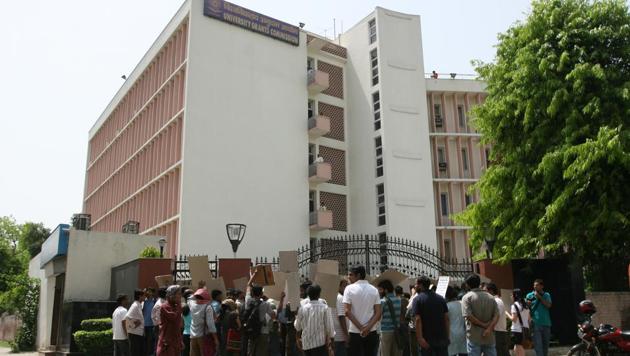UGC cracks whip to fill vacant posts in universities
The letter written by UGC secretary Prof Rajnish Jain states that “shortage of quality teaching faculty in higher education institutions is a major concern and requires to be addressed immediately for improving the quality of higher education.”
With 50 percent vacancies in government universities and 33 percent in colleges, Rajasthan faces multiple challenges in filling vacancies as directed by the University Grant Commission (UGC).

The UGC has written to all vice chancellors of state universities asking them to fill vacant posts in government colleges and universities in six months. Action will be taken, including withholding of funds, if the institutions violate the guidelines, warns the commission responsible for maintaining standards of higher education in the country.
The letter written by UGC secretary Prof Rajnish Jain states that “shortage of quality teaching faculty in higher education institutions is a major concern and requires to be addressed immediately for improving the quality of higher education.”
The situation of higher education system in Rajasthan can be judged from the fact that no government university or college features in the country’s top 100 institutions as ranked by the Ministry of Human Resource Development in the National Institutional Ranking Framework.
Rajasthan has 26 state universities with a total sanctioned teaching faculty of 4,498. Of this, 2,256 (49.8 per cent) posts are lying vacant, as per the higher education department data.
For instance, the University of Rajasthan, the largest university in the state, has 976 sanctioned posts in various departments. Of these, 509 posts are vacant.
NL Gupta, general secretary of the Rajasthan University and College Teachers Association (Rashtriya), said that the appointment of faculty is stuck due to government interference.
“Even the sanctioned posts have to be sent to the finance department for permission. Our demand is that on sanctioned posts, the vice chancellor should have a free hand in appointments,” Gupta said.
Apart from staff crunch, the appointment of vice chancellors too has not been done. Of the 26 universities, there are no VCs in 13 (50 percent) varsities, the higher education department data shows. None of the five agriculture universities have permanent VCs.
Of the 250 government colleges, about 2,000 posts are vacant in the teaching cadre of 6,000, a gap of 33 percent.
Universities and colleges in Rajasthan are plagued by several problems such as shortage of teaching and non-teaching staff, lack of resources, lack of infrastructure, and poor quality of education and large scale absenteeism, said educationists.
Gupta said successive governments have shown no commitment to improving education scenario in the state, but have are only relegated to transfer politics. “Governments sanction transfers on basis of ideology. Congress is replacing people appointed to the boards of studies, academic councils and syndicates by the earlier government with those who are ideologically close to them,” he said.
Rajasthan University and College Teachers Association general secretary Vijay Airi said for the past many years governments have announced setting up of new colleges for political mileage without adequate provision of funds or faculty or infrastructure. “How can these universities function? What will students learn here?” he asked.
For instance, in the Sikar, Bharatpur, Alwar, Banswara Tribal University, Sports university in Jhunjhunu, University of Journalism and Mass Communication and Bikaner Technical University all teaching posts are vacant.
The UGC has proposed guidelines for recruitment of faculty outlining the selection procedure and time frame for recruitment.
Principal secretary higher and technical education Vaibhav Galriya said the government is serious to fill all the vacant posts. He said the issue will be taken up with the finance department and only after the department’s clearance the recruitment process can be initiated.












